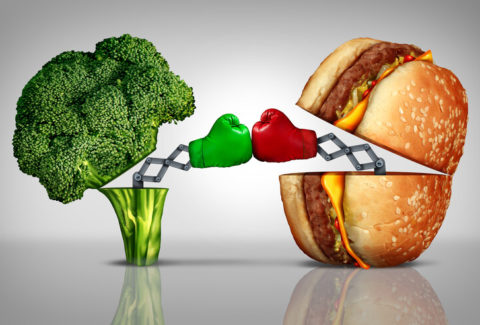The One Constant in Anxiety
Have you been complaining [1] about your spouse, a parent, your child, or a sibling? Have you been complaining about a family member, a friend, your boss, or a co-worker?
How long have you been complaining about them? What’s the result of complaining been? Or, how much change have you noticed in any of those individuals you’ve been complaining about?
Now, the question is, why. Why is it that complaining about anyone leads to no changes whatsoever? In fact, why is it that you may be complaining about John, while someone else tells you that John is the best person on earth? How do we explain that? Is it taste? Is it because “everyone is different?” Have we been using thoughtless explanations like this that we have learned to explain things that we barely understand, or is it something else?
No matter how much complaining you’ve been doing, there have been no changes; and the reason you are unlikely to see any changes in those individuals is because it has nothing whatsoever to do with them but has everything to do with you.[2]
This is because:
- You can experience only the product of your thoughts
- Your thoughts are not without an effect
- The effects of your thoughts expand beyond you
Our discovery that the effects of our thoughts expand beyond us is one of the most revolutionary neuroscientific findings available, it helps explain so many dilemmas, and helps reduce relationship to its simplest possible formula.
In other words, when you are looking at others, whatever it is that may be about them is totally and absolutely neutral. Whatever it is that may be about them has no meaning whatsoever. And whatever it is that may be about them will remain meaningless until you start assigning meaning to them. [3]
You may be reading about relationships in this context for the first time. It is rather counterintuitive to how we were all raised, socialized, and programmed; yet it is the single Constant in relationships. Everything else you may have heard about relationships is a variable. One thing may work for you, while not for someone else. One thing may give you one result with one person, while a different result with someone else. And one thing may give you one result with one person one time, and a different result with that same person at a different time.
What remains constant and will always be so is you. You are the constant. And you are the constant because you are the thinker and with your thought, you started to give meaning to the person, her words, her actions or behaviors, and her “attitude.” Until then, her “attitude” was totally neutral, and your thought started the process of the production of an effect.
Now, for those with social or performance anxiety; or for those with Generalized Anxiety Disorder (GAD), or PTSD, triggered by someone, or by a type of relationship, this is rather great news for them. For when they begin to understand that everything about anyone around them is neutral, yet they start to experience some feelings or body manifestations, they will be able to remind themselves that such a response or reaction has nothing to do with the other person, but has all to do with their own thought assigning meaning to that person.
The awareness itself will not resolve the anxiety overnight, but it will be an insightful beginning towards a solution of anxiety, particularly that related to social or performance anxiety, GAD, PTSD, or trauma reactivity.
As a clinician, would you like to learn more about the one constant that makes the difference in Anxiety? If so, join us for our full-day 6 CEU webinar on Anxiety Disorder, scheduled for Friday, March 12th. Click here to register, and
Until soon,
Karen and Mardoche
[1] Eion, Katherine. “Effectively Stop Complaining in 7 Easy Steps.” Lifehack, Lifehack, 20 Feb. 2014, www.lifehack.org/articles/communication/7-effective-ways-stop-complaining.html.
[2] Sofield, Deb. “Don’t Complain About Things You Are Not Willing to Change.” Medium, Medium, 27 Jan. 2018, medium.com/@debsofield/dont-complain-about-things-you-are-not-willing-to-change-2bf6fae94817.
[3] Marsen, S. (2008). The Role of Meaning in Human Thinking, Journal of Evolution and Technology 17(1) pgs 45-58. http://jetpress.org/v17/marsen.html







